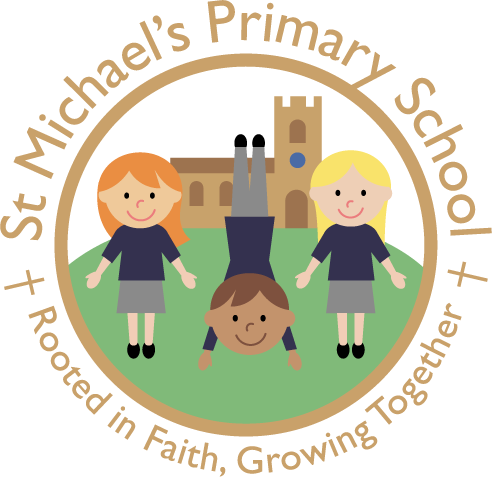Science
Science at St Michael’s CE Primary School
Intent
At St Michael’s, our Science curriculum is designed to develop pupils’ curiosity, excitement and understanding of the world around them. We are committed to delivering a high-quality, enquiry-based Science education that encourages children to ask questions, explore ideas, and investigate through practical, hands-on experiences.
Our intent is to:
-
Inspire a lifelong love of science by nurturing pupils’ natural curiosity and developing their understanding of key scientific concepts.
-
Equip children with the knowledge and vocabulary needed to confidently explain scientific processes, ideas, and phenomena.
-
Enable pupils to work scientifically using the five Science Lines of Enquiry:
-
Observing over time
-
Identifying and classifying
-
Comparative and fair testing
-
Pattern seeking
-
Research using secondary sources
-
-
Develop pupils’ skills in planning, carrying out, and evaluating scientific investigations in a way that supports critical thinking, resilience, and teamwork.
-
Ensure that all children, regardless of background or ability, have access to a broad and engaging science curriculum that prepares them for the next stage of their learning.
Implementation
Science is taught as a discrete subject in every year group following the National Curriculum, with units clearly mapped out to ensure full coverage and progression. Key features of our implementation include:
-
We use the Science Lines of Enquiry icons to structure planning, teaching, and assessment of scientific enquiry skills throughout the school. These icons are embedded in planning and made visible to pupils to help them understand and reflect on the type of enquiry they are doing.
-
Lessons are carefully sequenced to build on prior learning, deepen understanding, and develop key vocabulary and scientific knowledge over time.
-
Every unit includes practical investigations and experiments, enabling children to apply knowledge and develop enquiry skills in real-life contexts.
-
Teachers use questioning, modelling, and scaffolding to support learners of all abilities and ensure high-quality outcomes.
-
Children regularly record findings using drawings, charts, graphs, and written explanations, helping to develop scientific literacy and cross-curricular links with maths and English.
-
Planning and assessment are supported by our science enquiry icons and clear knowledge organisers that outline key facts, vocabulary and objectives for each unit.
-
We enhance the curriculum with STEM enrichment opportunities, such as science weeks, outdoor learning, visitors and workshops, to widen pupils’ experience of science in the real world.
Impact
The impact of our Science curriculum is that children at St Michael’s:
-
Develop a secure understanding of scientific concepts and vocabulary appropriate to their age.
-
Demonstrate growing confidence in planning, carrying out, and evaluating investigations using a range of enquiry types.
-
Ask thoughtful questions, make predictions, and draw conclusions based on evidence.
-
Are enthusiastic, engaged and curious learners who enjoy science and understand its relevance to everyday life.
-
Are well-prepared for the next stage of science education, with the skills, knowledge and enthusiasm needed to succeed in Key Stage 3 and beyond.
-
Show resilience, collaboration and problem-solving – qualities that serve them across the wider curriculum and throughout life.
Progress is measured through formative assessment, pupil voice, recorded outcomes, and end-of-unit reflections, ensuring that each child is supported and challenged appropriately in their science learning journey.
